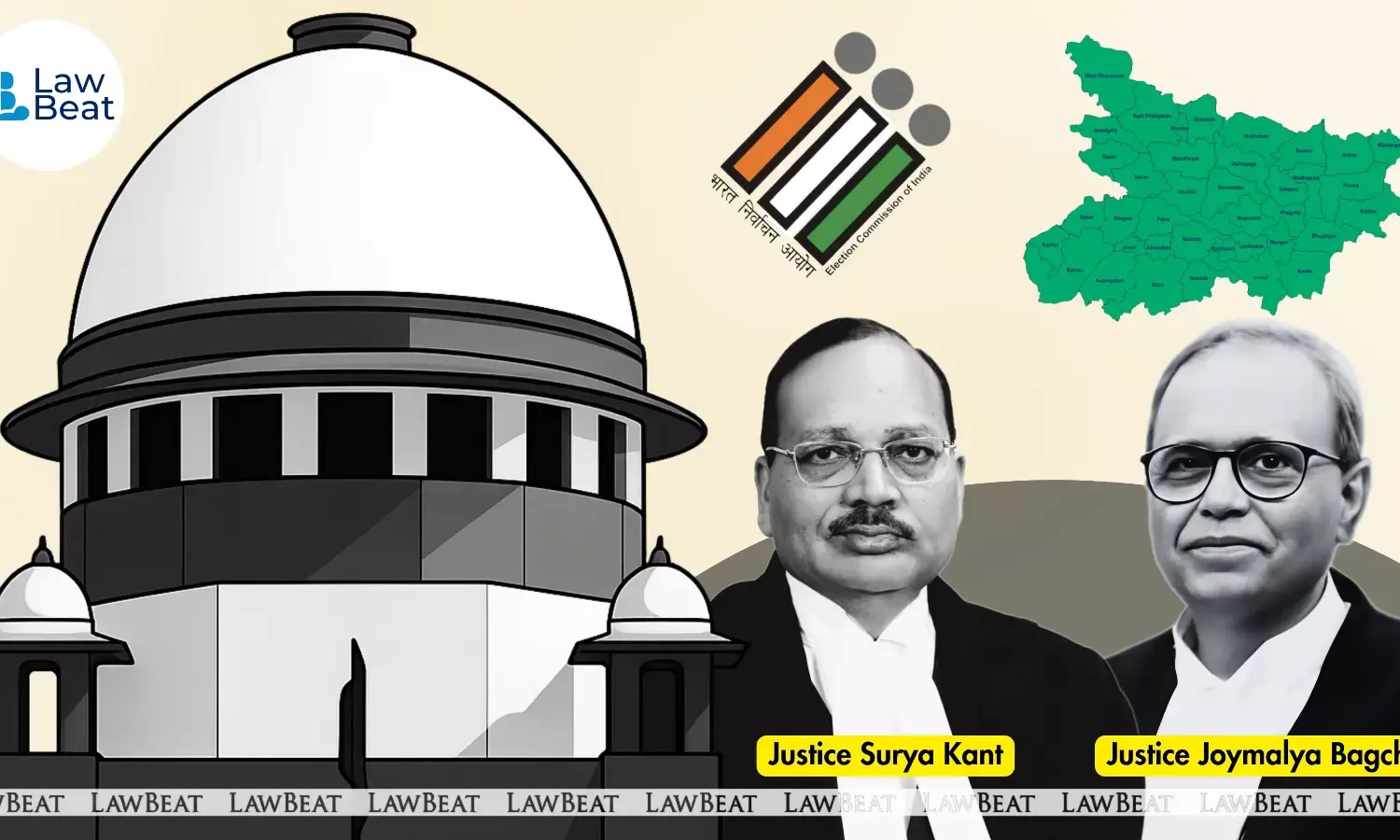‘If It Has No Power, It Won’t’: Supreme Court on ECI’s Authority to Determine Citizenship During Bihar SIR

SC to hear pleas challenging Election Commission’s Special Revision of electoral rolls in Bihar, Tamil Nadu and West Bengal; issues notice to ECI
The Supreme Court on Tuesday heard a batch of petitions challenging the Election Commission of India’s (ECI) Special Intensive Revision (SIR) of electoral rolls in Bihar amid concerns over data protection, voter verification, and the Commission’s jurisdiction in determining citizenship.
The Bench of Justices Surya Kant and Joymalya Bagchi heard submissions from Advocate Prashant Bhushan for the Association for Democratic Reforms (ADR), and Senior Advocate Rakesh Dwivedi for the ECI.
Bhushan argued that the ECI has “no authority to verify citizenship” through the SIR and that several voters appeared multiple times with identical photographs. He said the Commission already has a de-duplication software to address such issues but “isn’t using it.” He also pressed for acknowledgment slips for enumeration forms and sought access to the 2003 electoral rolls in a searchable format to ensure transparency.
Justice Surya Kant observed that if the ECI possesses such powers, it must act lawfully, adding, “If it has no power, it won’t.”
Justice Bagchi raised concerns over data privacy, saying, “The Election Commission holds citizens’ data in trust, it’s a valuable asset. Instead of public access, encrypted verification could protect voter information.”
When Bhushan questioned why the ECI couldn’t itself provide the data in machine-readable format, Justice Bagchi remarked, “You still lock your house even if it can be broken, the same logic applies to data protection.”
Dwivedi said, “The voter should be in focus, not the analysers,” emphasizing that SIR practices vary across states.
Justice Kant added that local conditions and literacy levels must be considered while implementing reforms.
In a related development, Advocate Ashwini Upadhyay mentioned his petition challenging Form 6, which allows Aadhaar as proof of identity for voter registration. Justice Bagchi observed that “UIDAI notifications cannot override the Representation of the People Act,” and described Form 6 as delegated legislation under the Act. Upadhyay argued that “demographic changes in nearly 200 of 800 districts” raised concerns of national security.
The Bench will take up interim issues in the SIR cases on November 26 and continue hearings on November 27, directing that no other matter be listed on those dates.
Past Hearings
On October 9, the Court had directed the Bihar State Legal Services Authority (SLSA) to ensure immediate assistance to all individuals reportedly excluded from Bihar’s final voter rolls during the Election Commission’s SIR ahead of the Assembly elections. Previously, ECI had told the Court that the voter roll revision in Bihar had followed due process and that no genuine voter had complained; only Delhi-based NGOs had raised objections through data analysis Previously, on September 15, the Court had assumed that the ECI, as a constitutional authority, was following the law in conducting the SIR of Bihar’s electoral rolls and warned that any illegality would render the exercise void.
Case Title: Association for Democratic Reforms & Ors v. Election Commission of India & Anr.
Hearing Date: November 11, 2025
Bench: Justice Surya Kant and Justice Joymalya Bagchi
